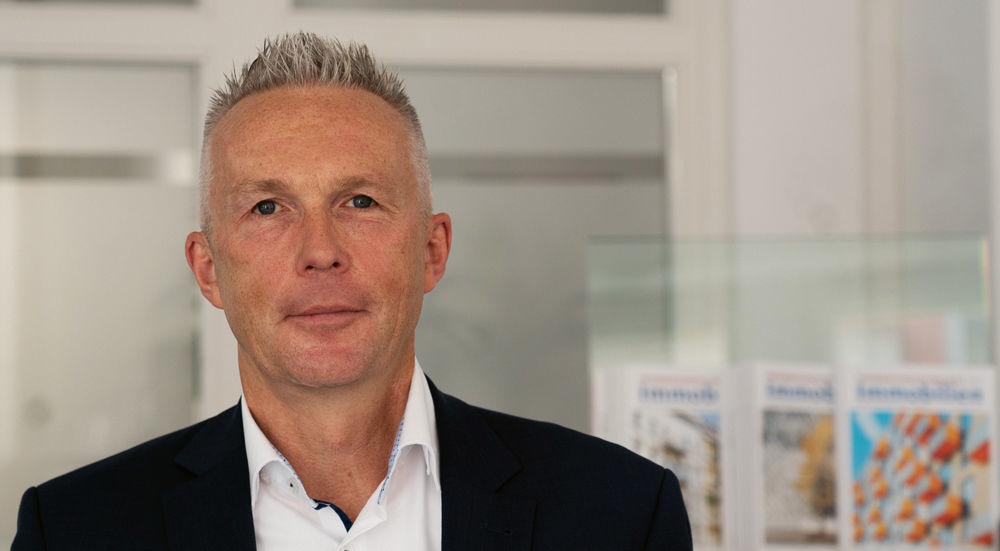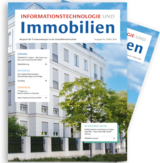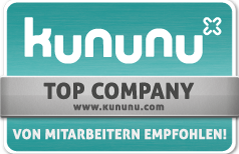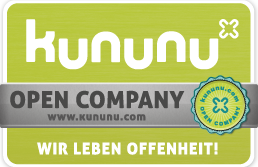Full steam ahead! Innovative utilities cost management from PROMOS is taking off
IT&I: Mr Krause, for nine months you have been helping PROMOS consult, the full-service provider for real estate software, to further develop and position innovative utilities cost management. What motivates you in this?
Dirk Krause: I have been working in the housing industry for almost 25 years and over this time I've devoted myself to billing consumption-based additional costs. This involved ERP-integrated forms of billing, in other words the actual billing within the ERP software or the integration of externally generated invoices by meter reading companies. The task for me as a service provider was to reduce the effort involved in the billing process for the companies to a minimum. Our service was designed in such a way that it was provided in the respective ERP system, which, as a result, allowed an insight into the existing internal and cross-company processes and interfaces. Based on this knowledge, solutions can be defined and implemented that optimise processes in the long term and make processing more transparent and flexible.
Integrated forms of billing are not currently standard, which makes it necessary to find solutions that pursue the same objective. PROMOS meets all the prerequisites for developing innovative utilities cost management and implementing it in the housing industry. I find it extremely motivating to work together with the entire team to design it and make it available on the market.
IT&I: From your experience, what are the current challenges facing housing companies and their service providers or partners?
Krause: The utilities and operating cost statements that we see today are nothing like those 20 years ago. Firstly, while legislation requires accounts to be increasingly transparent and “fair”, they should at the same time also be easily comprehensible. This leads to some complex calculations, such as those stipulated by the German ordinance on the consumption-based billing of heating and hot water costs (HKVO) in the 2009 amendment (VDI 2077). Furthermore, there are challenges to overcome in terms of climate protection and digitisation. The new Building Energy Act (GEG) regulates measures for climate protection that we are more familiar with from the Energy Efficiency Directive (EED). These issues, combined with the challenges of digitisation (e.g. IoT), require a new approach to data logistics, not only in the collection of data, but also in the delivery to end users, service providers and the housing industry. Returning to the billing of utilities, the focus is on continuous, barrier-free processes. Beginning with invoice receipt and verification by service providers, supply and disposal companies or authorities and municipal governments, this also includes bidirectional data logistics towards service providers and ends in communication with tenants or apartment owners. And there is still a great deal to be done here.
The digitisation of invoice receipt has already begun, though it has not yet been completed across the board. The connection of the service providers in the area of heater meter reading is rather inconsistent, which is partly also due to the interfaces of the respective ERP software. Irrespective of the technical requirements, there is a need for regular harmonisation of the accounting-relevant master data, as the accounting structures vary substantially between the meter reading company and the housing industry. Aside from the energy sector, there are also no standardised interfaces for the integration of other service sectors. This has the result that service providers collect data and make it available individually.
However, the housing industry should strive to create synergy effects in exporting building technology data and merge the data in a data pool. This opens up the possibility of integrating the data into internal and cross-company processes and gaining insights from it. Data is generally known to be the petroleum of the future and who should be in charge of it if not the housing company itself?

Dirk Krause, Head of Business Development and Partner Management at PROMOS consult, talks about digital utilities cost management with easysquare.
IT&I: What makes the billing process so exciting for IT?
Krause: As already mentioned, it entails a continuous, automated process that focuses on communication with tenants and apartment owners just as much as on connecting partners and service providers. This can only be achieved if the workflows or processes and interfaces are clearly regulated and defined.
The excitement here can primarily be attributed to the varying interfaces, the communication between service providers and the housing industry and the different billing structures. The existing interface formats do not allow the automatic transmission of data, especially in the case of complex systems. This presents the challenge of defining an individual process for each service provider and implementing it in practice. In addition to the existing expenses, it also entails a certain lack of transparency.
Liberalising and harmonising the connection or settlement from the viewpoint of the housing industry is extremely exciting.
IT&I: Are these the requirements that modern utilities cost management must meet today?
Krause: As we see it, yes. We want to harmonise the systems and processes, design them consistently and integrate them with a high degree of automation.
We understand this to entail ERP integration with corresponding workflows, a platform with mobile applications for communication with tenants, service providers and partners, and the provision of application software that thinks along the lines of the housing industry and constitutes an extension of the ERP system. PROMOS has expertise in all these areas.
IT&I: What answer does PROMOS consult deliver to all these questions?
Krause: We will provide our customers with an infrastructure for a company-specific billing process, thus choosing a holistic approach in which we merge all data on the easysquare platform and, as a result, offer customers the possibility of controlling processes in appending processes or just in order to gain insights.
This particularly requires open interfaces, which are a matter of course for us. Everyone who uses this infrastructure will play a role here. PROMOS is currently developing the solution under the name “easysquare utilities cost management”.
IT&I: Can you briefly outline this project?
Krause: PROMOS has been offering the NKPU for years now – a utilities cockpit that supports users in billing their additional costs. It is mainly used by large property managers. The easysquare utilities cost management now offers our customers a scalable range of solutions to enable them to achieve their respective strategic goals. It includes all the components that we consider important for innovative utilities cost management. The range of solutions offered is based on function modules that can be used individually or in combination.
The function modules comprise a modified NKPU 2.0, EasyConnect as a data and communication tool, easysquare Device light for meter and device management, the easysquare Billing Tool (EXAD 2.0) as a complete billing software solution and easysquare Device Management as an optional device management tool for companies setting up or operating their own meter reading service. However, all these functional modules will be presented in detail in the coming weeks and months.
IT&I: Do you consider this (i.e. this generic approach) to be the decisive advantage for housing companies?
Krause: Absolutely. Our solution not only focuses on the pure billing process, but also touches on all processes that arise in the context of utilities cost management. Incoming invoices, orders, tickets or even mid-year master data and meter information should be exchanged in this way in the medium term and incorporated into the respective processes.
However, the USP lies above all in the broad range of services that we offer via the solution. Regardless of whether they want to optimise data exchange with their existing partners and standardise it across all meter reading services, companies can implement the solution just as they can bring segments of value creation into the company by generating billing within their own infrastructure. This can be done in cooperation with existing partners or autonomously. The resulting flexibility also allows a gradual changeover without having to adapt or redefine the defined and established processes.
IT&I: Having an open platform means that you also work together with other partners?
Krause: Our customers can use this infrastructure, which is already used thousands of times today via the easysquare platform and supports companies in mobile communication. With EasyConnect we offer fully automatic data exchange in the data exchange format published by ARGE Heiwako. In addition, we aim to establish cooperation arrangements not only with the housing industry, but also with its partners so that we can exchange all information, formats and documents.
IT&I: Finally, when did you check your last operating cost statement?
Krause: Not so long ago. In the integration projects that I implemented before my time at PROMOS, this was usually one of the quality characteristics for project success.
Thank you for the interview.
redaktion@openpromos.de


